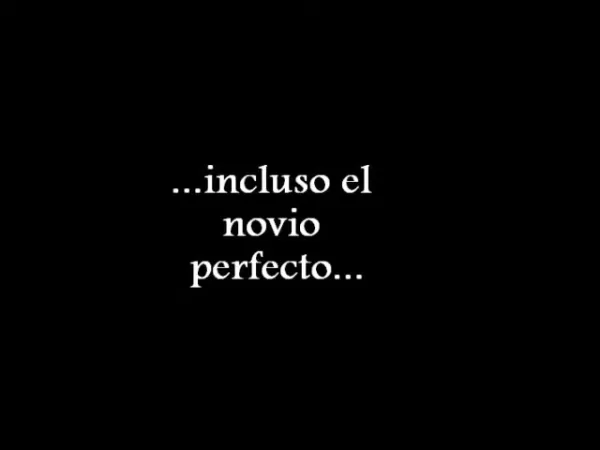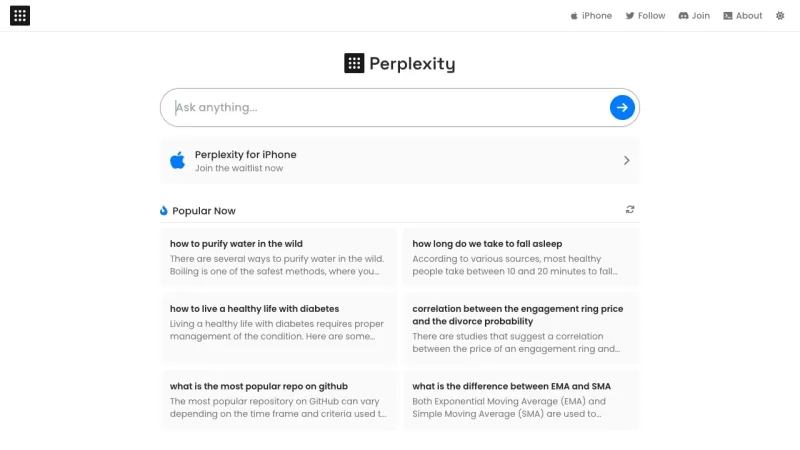Exploring Relationships and Identity Amidst Change: A Comprehensive Analysis

 May 5, 2025
May 5, 2025

 DouglasAnderson
DouglasAnderson

 0
0
Relationships are ever-changing, much like a river that flows and reshapes its course over time. As we grow personally, face distance, and deal with external pressures, the connections we share with others can be tested. This article dives into the challenges of keeping relationships strong amidst these shifts, offering insights and strategies to navigate these complexities and maintain meaningful bonds. We'll touch on themes like identity, trust, and commitment, providing a comprehensive guide for anyone looking to fortify their relationships against adversity.
Key Points
- Change is a constant in relationships; adapting is crucial.
- Distance, whether physical or emotional, affects relationships.
- Trust is the foundation of lasting connections.
- Communication is vital for overcoming challenges.
- Personal identity and growth influence how relationships evolve.
- Letting go, though painful, can be necessary for growth.
- Promises and commitments need ongoing effort.
- Proactively addressing change strengthens bonds.
Understanding the Dynamics of Change in Relationships
The Inevitability of Change
Change is the only thing we can count on, especially when it comes to relationships. People change, priorities shift, and life circumstances can alter the way we connect. Acknowledging that change is inevitable is the first step to handling it well.

Relationships often start under specific circumstances—shared interests, being close by, or mutual needs. But as individuals grow and their surroundings change, those initial conditions might not hold. This doesn't mean the relationship has to end, but it does mean we need to adapt and be willing to redefine what the relationship means to us.
Take, for instance, a friendship that starts in college. You bond over classes, late-night study sessions, and club activities. After graduation, though, you might go different ways—new jobs, new cities, new hobbies. Keeping that same level of connection takes effort and a willingness to adapt to new realities.
Adapting is essential because fighting change can lead to resentment, conflict, and ultimately, the end of the relationship. Embracing change, however, opens the door to growth, deeper understanding, and a stronger bond. This means being open to new experiences, supporting each other's journeys, and constantly communicating about our evolving needs and expectations.
Key elements of successful adaptation include:
- Open communication: Regularly discussing thoughts, feelings, and concerns.
- Flexibility: Being willing to compromise and adjust expectations.
- Empathy: Understanding and acknowledging each other's perspectives.
- Shared values: Maintaining alignment on core beliefs and principles.
- Commitment: Investing time and effort to nurture the relationship.
By recognizing the inevitability of change and adapting to it proactively, couples can build stronger, more fulfilling, and longer-lasting relationships.
The Impact of Distance: Physical and Emotional
Distance can put a strain on relationships, but understanding its nuances is key to lessening its negative effects. Both physical and emotional distance can create barriers to intimacy, communication, and shared experiences. Physical distance is about being geographically apart, which limits face-to-face interactions and shared activities. Emotional distance, on the other hand, involves a lack of emotional intimacy, vulnerability, and connection, even when you're physically together.
The challenges of physical distance are often practical: coordinating schedules, dealing with time zone differences, and managing travel costs. But the psychological impact can be just as significant. Feelings of loneliness, isolation, and disconnection can weaken the bond between people. Plus, being apart can lead to misunderstandings and misinterpretations, as nonverbal cues and context are often lost in remote communication.
Strategies for bridging physical distance include:
- Regular communication: Using video calls, phone calls, and messaging apps to stay connected.
- Planned visits: Scheduling regular trips to see each other, creating opportunities for shared experiences.
- Shared activities: Engaging in activities together remotely, like watching movies, playing online games, or reading the same book.
- Thoughtful gestures: Sending care packages, handwritten letters, or small gifts to show affection and support.
Emotional distance can be more subtle, often going unnoticed until the relationship is significantly damaged. It can show up as reluctance to share personal thoughts and feelings, a decrease in physical affection, or a growing sense of detachment. Addressing emotional distance requires vulnerability, honesty, and a willingness to reconnect on a deeper level.
Steps to overcome emotional distance:
- Initiate vulnerable conversations: Sharing personal thoughts, feelings, and insecurities.
- Actively listen: Paying attention to each other's needs and concerns.
- Express affection: Showing love and appreciation through physical touch, words of affirmation, and acts of service.
- Seek professional help: Consulting a therapist or counselor to address underlying issues.
Ultimately, managing distance, whether physical or emotional, requires proactive effort and a commitment to maintaining a strong connection. By understanding the challenges and implementing effective strategies, couples can navigate these obstacles and build more resilient relationships.

The Bedrock of Relationships: Why Trust Matters
Trust is the cornerstone of any healthy and enduring relationship. Without it, vulnerability becomes risky, communication falters, and the bond between individuals weakens. Trust involves believing in the reliability, honesty, and integrity of the other person. It allows individuals to feel safe, secure, and confident in the relationship.
Trust is earned over time through consistent actions and behaviors. It's built on a foundation of honesty, transparency, and accountability. When individuals show that they can be relied upon to keep their promises, be truthful in their words, and take responsibility for their actions, trust naturally grows.
Key components of building and maintaining trust include:
- Honesty: Being truthful and transparent in all interactions.
- Reliability: Consistently fulfilling commitments and promises.
- Integrity: Adhering to ethical and moral principles.
- Vulnerability: Being willing to share personal thoughts, feelings, and insecurities.
- Respect: Valuing each other's opinions, boundaries, and needs.
Trust can be easily broken by acts of betrayal, dishonesty, or neglect. Once broken, it can be difficult, though not impossible, to rebuild. Rebuilding trust requires sincere remorse, consistent effort, and a willingness to address the underlying issues that led to the breach. It also requires patience, understanding, and forgiveness from the injured party.
Steps to rebuild trust after a breach:
- Acknowledge the harm: Recognizing the pain and damage caused by the betrayal.
- Express remorse: Offering a sincere apology and taking responsibility for the actions.
- Make amends: Taking steps to repair the damage and demonstrate a commitment to change.
- Be patient: Understanding that rebuilding trust takes time and effort.
- Seek professional help: Consulting a therapist or counselor to facilitate the healing process.
Cultivating trust is an ongoing process that requires consistent effort and attention. By prioritizing honesty, reliability, and integrity, individuals can create relationships that are built on a strong foundation of mutual respect and understanding.

The Power of Communication: Bridging the Gaps
Effective communication is the lifeblood of any successful relationship. It's not just about expressing one's own thoughts and feelings but also about actively listening to and understanding the other person's perspective. Communication serves as a bridge, connecting individuals and fostering intimacy, empathy, and mutual understanding.
However, communication can also be a source of conflict and misunderstanding if not approached with care and intention. Barriers to effective communication include assumptions, defensiveness, criticism, and a lack of empathy. Overcoming these barriers requires conscious effort and a willingness to adopt healthy communication habits.
Key elements of effective communication include:
- Active listening: Paying attention to both verbal and nonverbal cues, seeking clarification, and summarizing to ensure understanding.
- Assertiveness: Expressing one's own needs and opinions clearly and respectfully.
- Empathy: Understanding and acknowledging the other person's feelings and perspective.
- Non-defensiveness: Avoiding blame, criticism, and defensiveness in discussions.
- Honesty: Being truthful and transparent in all interactions.
Strategies for improving communication in relationships:
- Schedule regular check-ins: Setting aside time for dedicated conversations about the relationship.
- Practice active listening: Focusing on understanding the other person's perspective.
- Use "I" statements: Expressing feelings and needs without blaming or criticizing the other person.
- Avoid generalizations: Being specific and avoiding sweeping statements.
- Take breaks when needed: Stepping away from a discussion if emotions become too intense.
By prioritizing effective communication, couples can navigate challenges, resolve conflicts, and deepen their connection. It's an ongoing process that requires patience, understanding, and a commitment to building a stronger, more resilient relationship.

Navigating a 'Perfect' Life: Challenges and Realities
The Illusion of Perfection
The idea of a 'perfect life,' perfect friends, and even a perfect boyfriend often feels like a mirage, especially in the context of relationships. Social media and cultural norms can create unrealistic expectations, pushing individuals to chase an unattainable ideal.

This pressure can lead to dissatisfaction, as real-life relationships inevitably fall short of the idealized standard.
The pursuit of perfection can show up in several ways:
- Unrealistic expectations: Holding oneself and others to impossibly high standards.
- Constant comparison: Measuring one's own relationships against those portrayed on social media or in popular culture.
- Fear of vulnerability: Hiding imperfections and insecurities to maintain a flawless image.
- Avoidance of conflict: Suppressing disagreements and concerns to preserve a sense of harmony.
However, genuine relationships thrive on authenticity, vulnerability, and acceptance. Embracing imperfections, both in oneself and in others, is essential for fostering intimacy and creating a safe space for growth. Conflict, when managed constructively, can also be an opportunity for deeper understanding and resolution.
Instead of striving for perfection, focus on building strong, healthy relationships based on:
- Authenticity: Being true to oneself and allowing others to see one's genuine self.
- Acceptance: Embracing imperfections and offering unconditional support.
- Vulnerability: Sharing personal thoughts, feelings, and insecurities.
- Communication: Engaging in open and honest conversations.
- Forgiveness: Letting go of resentment and offering second chances.
By shifting the focus from perfection to authenticity, couples can create relationships that are more fulfilling, resilient, and enduring.
The Role of Personal Identity and Growth
Personal identity and growth play a crucial role in shaping relationship dynamics. As individuals evolve, their needs, values, and aspirations may change, impacting the bond they share with others. It's essential to recognize and support each other's individual journeys while maintaining a shared sense of purpose and direction.
Challenges related to personal identity and growth in relationships:
- Diverging paths: Growing in different directions, leading to a loss of shared interests and values.
- Identity crises: Experiencing a significant shift in self-perception, causing confusion and uncertainty.
- Lack of self-awareness: Being unaware of one's own needs and desires, leading to resentment and frustration.
- Suppression of individuality: Sacrificing personal growth to maintain harmony in the relationship.
However, individual growth can also enrich and strengthen relationships. By supporting each other's aspirations, encouraging self-discovery, and celebrating personal achievements, couples can foster a sense of mutual respect and admiration.
Strategies for navigating personal identity and growth in relationships:
- Encourage individual pursuits: Supporting each other's hobbies, interests, and career goals.
- Communicate openly about evolving needs and desires: Discussing how personal growth impacts the relationship.
- Embrace change: Being willing to adapt to new roles, responsibilities, and priorities.
- Seek individual therapy or counseling: Addressing personal issues and developing self-awareness.
- Celebrate individual achievements: Acknowledging and appreciating each other's accomplishments.
By prioritizing personal growth and supporting each other's individual journeys, couples can build relationships that are not only enduring but also enriching and fulfilling.

Letting Go: When It's Necessary and How to Do It
Sometimes, despite our best efforts, relationships reach a point where they are no longer sustainable or healthy. Recognizing when it's time to let go can be a difficult and painful process, but it's often a necessary step for personal growth and well-being. Letting go doesn't necessarily mean assigning blame or harboring resentment; it can simply be an acknowledgment that the relationship has run its course.
Signs that it may be time to let go:
- Consistent conflict and negativity: Experiencing frequent arguments, criticism, and disrespect.
- Lack of trust and intimacy: Feeling unable to be vulnerable or honest with each other.
- Diverging values and goals: Growing in different directions, with no shared vision for the future.
- Emotional or physical abuse: Experiencing any form of harm or violence.
- Chronic unhappiness and dissatisfaction: Feeling consistently miserable and unfulfilled in the relationship.
Steps for letting go of a relationship in a healthy way:
- Communicate openly and honestly: Expressing feelings and needs in a respectful manner.
- Set clear boundaries: Defining expectations and limitations for future interactions.
- Seek support from friends, family, or a therapist: Processing emotions and developing coping strategies.
- Focus on self-care: Prioritizing personal well-being and engaging in activities that promote healing and growth.
- Accept the pain and allow yourself to grieve: Acknowledging the loss and allowing yourself time to heal.
Letting go can be a difficult and emotional process, but it's important to remember that it's often a necessary step for personal growth and well-being. By approaching the process with honesty, respect, and self-compassion, individuals can move forward with greater clarity and resilience.

Practical Steps for Navigating Relationship Changes
Step 1: Acknowledge and Accept Change
The first and most crucial step is to recognize and accept that change is an inevitable part of any relationship. Resisting change can lead to frustration, resentment, and conflict. Instead, try to embrace it as an opportunity for growth and deeper understanding. Acknowledge that both you and your partner are evolving, and that your relationship needs to adapt accordingly.

Actionable steps:
- Reflect on the changes: Identify the specific changes that are impacting your relationship.
- Discuss your feelings: Share your thoughts and emotions with your partner.
- Accept the new reality: Acknowledge that things may not be the same as they once were.
- Focus on the positives: Identify the potential benefits of the changes.
- Be open to new possibilities: Explore new ways to connect and strengthen your bond.
Step 2: Open and Honest Communication
Effective communication is the cornerstone of navigating change in relationships. Create a safe and supportive space where you and your partner can openly share your thoughts, feelings, and concerns. Practice active listening, empathy, and non-judgmental communication.

Actionable steps:
- Schedule regular check-ins: Set aside dedicated time for meaningful conversations.
- Practice active listening: Pay attention to both verbal and nonverbal cues.
- Use "I" statements: Express your feelings and needs without blaming or criticizing.
- Ask clarifying questions: Ensure you understand your partner's perspective.
- Validate each other's emotions: Acknowledge and respect each other's feelings.
Step 3: Prioritize Shared Experiences and Quality Time
Maintaining a strong connection requires investing in shared experiences and quality time. Despite the challenges of distance, busy schedules, or changing priorities, make a conscious effort to create opportunities for meaningful interactions. Plan dates, engage in shared activities, and cultivate common interests.

Actionable steps:
- Schedule regular dates: Plan outings or activities that you both enjoy.
- Engage in shared hobbies: Participate in activities that align with your mutual interests.
- Create new traditions: Establish new routines or rituals that foster connection.
- Prioritize quality time: Minimize distractions and focus on being present with each other.
- Express appreciation: Acknowledge and value each other's contributions to the relationship.
Step 4: Cultivate Trust and Forgiveness
Trust is the foundation of any healthy relationship, and it's essential to cultivate it, especially during times of change. Be honest, reliable, and transparent in your interactions. If trust has been broken, be willing to forgive and work towards rebuilding it.

Actionable steps:
- Be honest and transparent: Communicate openly about your thoughts, feelings, and actions.
- Fulfill your commitments: Keep your promises and be reliable.
- Practice forgiveness: Let go of resentment and offer second chances.
- Seek to understand each other's perspectives: Empathize with each other's experiences.
- Rebuild trust through consistent actions: Demonstrate your commitment to the relationship.
Embracing Change: Weighing the Pros and Cons in Relationships
Pros
- Leads to personal growth and self-discovery.
- Strengthens the bond through shared experiences.
- Promotes deeper understanding and empathy.
- Keeps the relationship dynamic and exciting.
- Enhances resilience in the face of adversity.
Cons
- Can create distance and strain.
- May lead to conflict and misunderstandings.
- Requires effort and commitment to adapt.
- Can be emotionally challenging and painful.
- May result in the dissolution of the relationship.
Frequently Asked Questions
How do I know if my relationship is worth saving?
Determining whether a relationship is worth saving is a deeply personal decision. Consider the level of commitment from both parties, the history of shared experiences, and the potential for future growth. If there is still a foundation of love, respect, and a willingness to work through challenges, the relationship may be worth saving. However, if there is chronic conflict, abuse, or a fundamental incompatibility, it may be time to consider letting go.
What can I do if my partner is resistant to change?
If your partner is resistant to change, patience, empathy, and open communication are key. Try to understand their fears and concerns, and validate their feelings. Explain how the changes will benefit both of you, and emphasize your commitment to the relationship. If necessary, seek professional help from a therapist or counselor.
How can I maintain my individuality while being in a relationship?
Maintaining individuality in a relationship requires a conscious effort to prioritize self-care, pursue personal interests, and set healthy boundaries. Encourage each other to engage in individual hobbies, maintain friendships outside the relationship, and respect each other's need for space and independence. Open communication is also crucial for navigating differing needs and desires.
Is it possible to rebuild trust after it's been broken?
Yes, it is possible to rebuild trust after it has been broken, but it requires a significant commitment from both parties. The person who broke the trust must take full responsibility for their actions, express sincere remorse, and make amends for the harm they caused. The injured party must be willing to forgive and give their partner a second chance. Rebuilding trust is a gradual process that requires patience, consistency, and open communication.
What are some healthy ways to cope with the end of a relationship?
Coping with the end of a relationship can be a challenging and emotional process. Allow yourself time to grieve the loss, seek support from friends and family, and prioritize self-care activities. Engage in activities that promote healing and growth, such as journaling, exercise, or spending time in nature. Consider seeking professional help from a therapist or counselor to process your emotions and develop coping strategies.
Related Questions
How does social media affect our perception of relationships and identity?
Social media significantly influences our perception of relationships and identity by presenting curated, often unrealistic portrayals of both. This can lead to feelings of inadequacy, comparison, and pressure to maintain a 'perfect' image. Relationships on social media are often depicted as flawless, leading to unrealistic expectations and dissatisfaction in our own lives. Furthermore, individuals may feel compelled to construct a carefully crafted online identity, which can lead to feelings of inauthenticity and disconnect from their true selves. It's essential to be mindful of the curated nature of social media and to cultivate a healthy sense of self-worth that is not contingent on external validation. Focus on building genuine connections and embracing imperfections, both in oneself and in others. Develop critical thinking skills to discern between reality and manufactured online personas.
What role do cultural expectations play in shaping our relationship norms and ideals?
Cultural expectations exert a powerful influence on our relationship norms and ideals by dictating acceptable behaviors, roles, and expectations within romantic partnerships and other interpersonal connections. These expectations are often deeply ingrained and can shape our beliefs about love, commitment, and family dynamics. For example, some cultures may emphasize traditional gender roles, while others prioritize individual autonomy and egalitarian partnerships. It's crucial to critically examine these cultural expectations and to challenge those that are harmful or limiting. By developing a greater awareness of cultural influences, individuals can make conscious choices about the kind of relationships they want to create, rather than blindly conforming to societal norms.
How can couples balance individual needs with the needs of the relationship?
Balancing individual needs with the needs of the relationship is a delicate dance that requires open communication, compromise, and mutual respect. Each partner should feel empowered to pursue their personal interests and goals while also contributing to the overall well-being of the relationship. It's essential to establish clear boundaries, communicate needs and desires effectively, and be willing to negotiate solutions that satisfy both individuals. Regular check-ins can help couples stay attuned to each other's evolving needs and proactively address any potential imbalances. Remember, a healthy relationship allows for individual growth and development without sacrificing the bond between partners.
Related article
 Convert Videos to Text Effortlessly: No Typing Required
Ever found yourself in a situation where you need to transcribe a long video, but the thought of typing out every word is daunting? Whether it's a two-hour lecture or a critical business meeting recording, many of us face this challenge. But fear not! This article is here to introduce you to a hassl
Convert Videos to Text Effortlessly: No Typing Required
Ever found yourself in a situation where you need to transcribe a long video, but the thought of typing out every word is daunting? Whether it's a two-hour lecture or a critical business meeting recording, many of us face this challenge. But fear not! This article is here to introduce you to a hassl
 Terminator Future War: Advanced Tech & Survival Strategies
The chilling vision of the Terminator future war, where humanity struggles against a relentless robotic enemy, continues to captivate and inspire strategic thinking. This blog delves into the advanced technology and desperate survival strategies that define this dystopian conflict. By exploring thes
Terminator Future War: Advanced Tech & Survival Strategies
The chilling vision of the Terminator future war, where humanity struggles against a relentless robotic enemy, continues to captivate and inspire strategic thinking. This blog delves into the advanced technology and desperate survival strategies that define this dystopian conflict. By exploring thes
 Minecraft Village Exploration: Trading, Farming, and Resource Gathering
Exploring the Heart of Minecraft: VillagesMinecraft villages are more than just a collection of buildings; they're vibrant communities brimming with life and opportunities. Whether you're a seasoned player or just starting out, these villages offer a safe haven, a place to gather resources, and a ch
Comments (0)
0/200
Minecraft Village Exploration: Trading, Farming, and Resource Gathering
Exploring the Heart of Minecraft: VillagesMinecraft villages are more than just a collection of buildings; they're vibrant communities brimming with life and opportunities. Whether you're a seasoned player or just starting out, these villages offer a safe haven, a place to gather resources, and a ch
Comments (0)
0/200

 May 5, 2025
May 5, 2025

 DouglasAnderson
DouglasAnderson

 0
0
Relationships are ever-changing, much like a river that flows and reshapes its course over time. As we grow personally, face distance, and deal with external pressures, the connections we share with others can be tested. This article dives into the challenges of keeping relationships strong amidst these shifts, offering insights and strategies to navigate these complexities and maintain meaningful bonds. We'll touch on themes like identity, trust, and commitment, providing a comprehensive guide for anyone looking to fortify their relationships against adversity.
Key Points
- Change is a constant in relationships; adapting is crucial.
- Distance, whether physical or emotional, affects relationships.
- Trust is the foundation of lasting connections.
- Communication is vital for overcoming challenges.
- Personal identity and growth influence how relationships evolve.
- Letting go, though painful, can be necessary for growth.
- Promises and commitments need ongoing effort.
- Proactively addressing change strengthens bonds.
Understanding the Dynamics of Change in Relationships
The Inevitability of Change
Change is the only thing we can count on, especially when it comes to relationships. People change, priorities shift, and life circumstances can alter the way we connect. Acknowledging that change is inevitable is the first step to handling it well.

Relationships often start under specific circumstances—shared interests, being close by, or mutual needs. But as individuals grow and their surroundings change, those initial conditions might not hold. This doesn't mean the relationship has to end, but it does mean we need to adapt and be willing to redefine what the relationship means to us.
Take, for instance, a friendship that starts in college. You bond over classes, late-night study sessions, and club activities. After graduation, though, you might go different ways—new jobs, new cities, new hobbies. Keeping that same level of connection takes effort and a willingness to adapt to new realities.
Adapting is essential because fighting change can lead to resentment, conflict, and ultimately, the end of the relationship. Embracing change, however, opens the door to growth, deeper understanding, and a stronger bond. This means being open to new experiences, supporting each other's journeys, and constantly communicating about our evolving needs and expectations.
Key elements of successful adaptation include:
- Open communication: Regularly discussing thoughts, feelings, and concerns.
- Flexibility: Being willing to compromise and adjust expectations.
- Empathy: Understanding and acknowledging each other's perspectives.
- Shared values: Maintaining alignment on core beliefs and principles.
- Commitment: Investing time and effort to nurture the relationship.
By recognizing the inevitability of change and adapting to it proactively, couples can build stronger, more fulfilling, and longer-lasting relationships.
The Impact of Distance: Physical and Emotional
Distance can put a strain on relationships, but understanding its nuances is key to lessening its negative effects. Both physical and emotional distance can create barriers to intimacy, communication, and shared experiences. Physical distance is about being geographically apart, which limits face-to-face interactions and shared activities. Emotional distance, on the other hand, involves a lack of emotional intimacy, vulnerability, and connection, even when you're physically together.
The challenges of physical distance are often practical: coordinating schedules, dealing with time zone differences, and managing travel costs. But the psychological impact can be just as significant. Feelings of loneliness, isolation, and disconnection can weaken the bond between people. Plus, being apart can lead to misunderstandings and misinterpretations, as nonverbal cues and context are often lost in remote communication.
Strategies for bridging physical distance include:
- Regular communication: Using video calls, phone calls, and messaging apps to stay connected.
- Planned visits: Scheduling regular trips to see each other, creating opportunities for shared experiences.
- Shared activities: Engaging in activities together remotely, like watching movies, playing online games, or reading the same book.
- Thoughtful gestures: Sending care packages, handwritten letters, or small gifts to show affection and support.
Emotional distance can be more subtle, often going unnoticed until the relationship is significantly damaged. It can show up as reluctance to share personal thoughts and feelings, a decrease in physical affection, or a growing sense of detachment. Addressing emotional distance requires vulnerability, honesty, and a willingness to reconnect on a deeper level.
Steps to overcome emotional distance:
- Initiate vulnerable conversations: Sharing personal thoughts, feelings, and insecurities.
- Actively listen: Paying attention to each other's needs and concerns.
- Express affection: Showing love and appreciation through physical touch, words of affirmation, and acts of service.
- Seek professional help: Consulting a therapist or counselor to address underlying issues.
Ultimately, managing distance, whether physical or emotional, requires proactive effort and a commitment to maintaining a strong connection. By understanding the challenges and implementing effective strategies, couples can navigate these obstacles and build more resilient relationships.

The Bedrock of Relationships: Why Trust Matters
Trust is the cornerstone of any healthy and enduring relationship. Without it, vulnerability becomes risky, communication falters, and the bond between individuals weakens. Trust involves believing in the reliability, honesty, and integrity of the other person. It allows individuals to feel safe, secure, and confident in the relationship.
Trust is earned over time through consistent actions and behaviors. It's built on a foundation of honesty, transparency, and accountability. When individuals show that they can be relied upon to keep their promises, be truthful in their words, and take responsibility for their actions, trust naturally grows.
Key components of building and maintaining trust include:
- Honesty: Being truthful and transparent in all interactions.
- Reliability: Consistently fulfilling commitments and promises.
- Integrity: Adhering to ethical and moral principles.
- Vulnerability: Being willing to share personal thoughts, feelings, and insecurities.
- Respect: Valuing each other's opinions, boundaries, and needs.
Trust can be easily broken by acts of betrayal, dishonesty, or neglect. Once broken, it can be difficult, though not impossible, to rebuild. Rebuilding trust requires sincere remorse, consistent effort, and a willingness to address the underlying issues that led to the breach. It also requires patience, understanding, and forgiveness from the injured party.
Steps to rebuild trust after a breach:
- Acknowledge the harm: Recognizing the pain and damage caused by the betrayal.
- Express remorse: Offering a sincere apology and taking responsibility for the actions.
- Make amends: Taking steps to repair the damage and demonstrate a commitment to change.
- Be patient: Understanding that rebuilding trust takes time and effort.
- Seek professional help: Consulting a therapist or counselor to facilitate the healing process.
Cultivating trust is an ongoing process that requires consistent effort and attention. By prioritizing honesty, reliability, and integrity, individuals can create relationships that are built on a strong foundation of mutual respect and understanding.

The Power of Communication: Bridging the Gaps
Effective communication is the lifeblood of any successful relationship. It's not just about expressing one's own thoughts and feelings but also about actively listening to and understanding the other person's perspective. Communication serves as a bridge, connecting individuals and fostering intimacy, empathy, and mutual understanding.
However, communication can also be a source of conflict and misunderstanding if not approached with care and intention. Barriers to effective communication include assumptions, defensiveness, criticism, and a lack of empathy. Overcoming these barriers requires conscious effort and a willingness to adopt healthy communication habits.
Key elements of effective communication include:
- Active listening: Paying attention to both verbal and nonverbal cues, seeking clarification, and summarizing to ensure understanding.
- Assertiveness: Expressing one's own needs and opinions clearly and respectfully.
- Empathy: Understanding and acknowledging the other person's feelings and perspective.
- Non-defensiveness: Avoiding blame, criticism, and defensiveness in discussions.
- Honesty: Being truthful and transparent in all interactions.
Strategies for improving communication in relationships:
- Schedule regular check-ins: Setting aside time for dedicated conversations about the relationship.
- Practice active listening: Focusing on understanding the other person's perspective.
- Use "I" statements: Expressing feelings and needs without blaming or criticizing the other person.
- Avoid generalizations: Being specific and avoiding sweeping statements.
- Take breaks when needed: Stepping away from a discussion if emotions become too intense.
By prioritizing effective communication, couples can navigate challenges, resolve conflicts, and deepen their connection. It's an ongoing process that requires patience, understanding, and a commitment to building a stronger, more resilient relationship.

Navigating a 'Perfect' Life: Challenges and Realities
The Illusion of Perfection
The idea of a 'perfect life,' perfect friends, and even a perfect boyfriend often feels like a mirage, especially in the context of relationships. Social media and cultural norms can create unrealistic expectations, pushing individuals to chase an unattainable ideal.

This pressure can lead to dissatisfaction, as real-life relationships inevitably fall short of the idealized standard.
The pursuit of perfection can show up in several ways:
- Unrealistic expectations: Holding oneself and others to impossibly high standards.
- Constant comparison: Measuring one's own relationships against those portrayed on social media or in popular culture.
- Fear of vulnerability: Hiding imperfections and insecurities to maintain a flawless image.
- Avoidance of conflict: Suppressing disagreements and concerns to preserve a sense of harmony.
However, genuine relationships thrive on authenticity, vulnerability, and acceptance. Embracing imperfections, both in oneself and in others, is essential for fostering intimacy and creating a safe space for growth. Conflict, when managed constructively, can also be an opportunity for deeper understanding and resolution.
Instead of striving for perfection, focus on building strong, healthy relationships based on:
- Authenticity: Being true to oneself and allowing others to see one's genuine self.
- Acceptance: Embracing imperfections and offering unconditional support.
- Vulnerability: Sharing personal thoughts, feelings, and insecurities.
- Communication: Engaging in open and honest conversations.
- Forgiveness: Letting go of resentment and offering second chances.
By shifting the focus from perfection to authenticity, couples can create relationships that are more fulfilling, resilient, and enduring.
The Role of Personal Identity and Growth
Personal identity and growth play a crucial role in shaping relationship dynamics. As individuals evolve, their needs, values, and aspirations may change, impacting the bond they share with others. It's essential to recognize and support each other's individual journeys while maintaining a shared sense of purpose and direction.
Challenges related to personal identity and growth in relationships:
- Diverging paths: Growing in different directions, leading to a loss of shared interests and values.
- Identity crises: Experiencing a significant shift in self-perception, causing confusion and uncertainty.
- Lack of self-awareness: Being unaware of one's own needs and desires, leading to resentment and frustration.
- Suppression of individuality: Sacrificing personal growth to maintain harmony in the relationship.
However, individual growth can also enrich and strengthen relationships. By supporting each other's aspirations, encouraging self-discovery, and celebrating personal achievements, couples can foster a sense of mutual respect and admiration.
Strategies for navigating personal identity and growth in relationships:
- Encourage individual pursuits: Supporting each other's hobbies, interests, and career goals.
- Communicate openly about evolving needs and desires: Discussing how personal growth impacts the relationship.
- Embrace change: Being willing to adapt to new roles, responsibilities, and priorities.
- Seek individual therapy or counseling: Addressing personal issues and developing self-awareness.
- Celebrate individual achievements: Acknowledging and appreciating each other's accomplishments.
By prioritizing personal growth and supporting each other's individual journeys, couples can build relationships that are not only enduring but also enriching and fulfilling.

Letting Go: When It's Necessary and How to Do It
Sometimes, despite our best efforts, relationships reach a point where they are no longer sustainable or healthy. Recognizing when it's time to let go can be a difficult and painful process, but it's often a necessary step for personal growth and well-being. Letting go doesn't necessarily mean assigning blame or harboring resentment; it can simply be an acknowledgment that the relationship has run its course.
Signs that it may be time to let go:
- Consistent conflict and negativity: Experiencing frequent arguments, criticism, and disrespect.
- Lack of trust and intimacy: Feeling unable to be vulnerable or honest with each other.
- Diverging values and goals: Growing in different directions, with no shared vision for the future.
- Emotional or physical abuse: Experiencing any form of harm or violence.
- Chronic unhappiness and dissatisfaction: Feeling consistently miserable and unfulfilled in the relationship.
Steps for letting go of a relationship in a healthy way:
- Communicate openly and honestly: Expressing feelings and needs in a respectful manner.
- Set clear boundaries: Defining expectations and limitations for future interactions.
- Seek support from friends, family, or a therapist: Processing emotions and developing coping strategies.
- Focus on self-care: Prioritizing personal well-being and engaging in activities that promote healing and growth.
- Accept the pain and allow yourself to grieve: Acknowledging the loss and allowing yourself time to heal.
Letting go can be a difficult and emotional process, but it's important to remember that it's often a necessary step for personal growth and well-being. By approaching the process with honesty, respect, and self-compassion, individuals can move forward with greater clarity and resilience.

Practical Steps for Navigating Relationship Changes
Step 1: Acknowledge and Accept Change
The first and most crucial step is to recognize and accept that change is an inevitable part of any relationship. Resisting change can lead to frustration, resentment, and conflict. Instead, try to embrace it as an opportunity for growth and deeper understanding. Acknowledge that both you and your partner are evolving, and that your relationship needs to adapt accordingly.

Actionable steps:
- Reflect on the changes: Identify the specific changes that are impacting your relationship.
- Discuss your feelings: Share your thoughts and emotions with your partner.
- Accept the new reality: Acknowledge that things may not be the same as they once were.
- Focus on the positives: Identify the potential benefits of the changes.
- Be open to new possibilities: Explore new ways to connect and strengthen your bond.
Step 2: Open and Honest Communication
Effective communication is the cornerstone of navigating change in relationships. Create a safe and supportive space where you and your partner can openly share your thoughts, feelings, and concerns. Practice active listening, empathy, and non-judgmental communication.

Actionable steps:
- Schedule regular check-ins: Set aside dedicated time for meaningful conversations.
- Practice active listening: Pay attention to both verbal and nonverbal cues.
- Use "I" statements: Express your feelings and needs without blaming or criticizing.
- Ask clarifying questions: Ensure you understand your partner's perspective.
- Validate each other's emotions: Acknowledge and respect each other's feelings.
Step 3: Prioritize Shared Experiences and Quality Time
Maintaining a strong connection requires investing in shared experiences and quality time. Despite the challenges of distance, busy schedules, or changing priorities, make a conscious effort to create opportunities for meaningful interactions. Plan dates, engage in shared activities, and cultivate common interests.

Actionable steps:
- Schedule regular dates: Plan outings or activities that you both enjoy.
- Engage in shared hobbies: Participate in activities that align with your mutual interests.
- Create new traditions: Establish new routines or rituals that foster connection.
- Prioritize quality time: Minimize distractions and focus on being present with each other.
- Express appreciation: Acknowledge and value each other's contributions to the relationship.
Step 4: Cultivate Trust and Forgiveness
Trust is the foundation of any healthy relationship, and it's essential to cultivate it, especially during times of change. Be honest, reliable, and transparent in your interactions. If trust has been broken, be willing to forgive and work towards rebuilding it.

Actionable steps:
- Be honest and transparent: Communicate openly about your thoughts, feelings, and actions.
- Fulfill your commitments: Keep your promises and be reliable.
- Practice forgiveness: Let go of resentment and offer second chances.
- Seek to understand each other's perspectives: Empathize with each other's experiences.
- Rebuild trust through consistent actions: Demonstrate your commitment to the relationship.
Embracing Change: Weighing the Pros and Cons in Relationships
Pros
- Leads to personal growth and self-discovery.
- Strengthens the bond through shared experiences.
- Promotes deeper understanding and empathy.
- Keeps the relationship dynamic and exciting.
- Enhances resilience in the face of adversity.
Cons
- Can create distance and strain.
- May lead to conflict and misunderstandings.
- Requires effort and commitment to adapt.
- Can be emotionally challenging and painful.
- May result in the dissolution of the relationship.
Frequently Asked Questions
How do I know if my relationship is worth saving?
Determining whether a relationship is worth saving is a deeply personal decision. Consider the level of commitment from both parties, the history of shared experiences, and the potential for future growth. If there is still a foundation of love, respect, and a willingness to work through challenges, the relationship may be worth saving. However, if there is chronic conflict, abuse, or a fundamental incompatibility, it may be time to consider letting go.
What can I do if my partner is resistant to change?
If your partner is resistant to change, patience, empathy, and open communication are key. Try to understand their fears and concerns, and validate their feelings. Explain how the changes will benefit both of you, and emphasize your commitment to the relationship. If necessary, seek professional help from a therapist or counselor.
How can I maintain my individuality while being in a relationship?
Maintaining individuality in a relationship requires a conscious effort to prioritize self-care, pursue personal interests, and set healthy boundaries. Encourage each other to engage in individual hobbies, maintain friendships outside the relationship, and respect each other's need for space and independence. Open communication is also crucial for navigating differing needs and desires.
Is it possible to rebuild trust after it's been broken?
Yes, it is possible to rebuild trust after it has been broken, but it requires a significant commitment from both parties. The person who broke the trust must take full responsibility for their actions, express sincere remorse, and make amends for the harm they caused. The injured party must be willing to forgive and give their partner a second chance. Rebuilding trust is a gradual process that requires patience, consistency, and open communication.
What are some healthy ways to cope with the end of a relationship?
Coping with the end of a relationship can be a challenging and emotional process. Allow yourself time to grieve the loss, seek support from friends and family, and prioritize self-care activities. Engage in activities that promote healing and growth, such as journaling, exercise, or spending time in nature. Consider seeking professional help from a therapist or counselor to process your emotions and develop coping strategies.
Related Questions
How does social media affect our perception of relationships and identity?
Social media significantly influences our perception of relationships and identity by presenting curated, often unrealistic portrayals of both. This can lead to feelings of inadequacy, comparison, and pressure to maintain a 'perfect' image. Relationships on social media are often depicted as flawless, leading to unrealistic expectations and dissatisfaction in our own lives. Furthermore, individuals may feel compelled to construct a carefully crafted online identity, which can lead to feelings of inauthenticity and disconnect from their true selves. It's essential to be mindful of the curated nature of social media and to cultivate a healthy sense of self-worth that is not contingent on external validation. Focus on building genuine connections and embracing imperfections, both in oneself and in others. Develop critical thinking skills to discern between reality and manufactured online personas.
What role do cultural expectations play in shaping our relationship norms and ideals?
Cultural expectations exert a powerful influence on our relationship norms and ideals by dictating acceptable behaviors, roles, and expectations within romantic partnerships and other interpersonal connections. These expectations are often deeply ingrained and can shape our beliefs about love, commitment, and family dynamics. For example, some cultures may emphasize traditional gender roles, while others prioritize individual autonomy and egalitarian partnerships. It's crucial to critically examine these cultural expectations and to challenge those that are harmful or limiting. By developing a greater awareness of cultural influences, individuals can make conscious choices about the kind of relationships they want to create, rather than blindly conforming to societal norms.
How can couples balance individual needs with the needs of the relationship?
Balancing individual needs with the needs of the relationship is a delicate dance that requires open communication, compromise, and mutual respect. Each partner should feel empowered to pursue their personal interests and goals while also contributing to the overall well-being of the relationship. It's essential to establish clear boundaries, communicate needs and desires effectively, and be willing to negotiate solutions that satisfy both individuals. Regular check-ins can help couples stay attuned to each other's evolving needs and proactively address any potential imbalances. Remember, a healthy relationship allows for individual growth and development without sacrificing the bond between partners.
 Convert Videos to Text Effortlessly: No Typing Required
Ever found yourself in a situation where you need to transcribe a long video, but the thought of typing out every word is daunting? Whether it's a two-hour lecture or a critical business meeting recording, many of us face this challenge. But fear not! This article is here to introduce you to a hassl
Convert Videos to Text Effortlessly: No Typing Required
Ever found yourself in a situation where you need to transcribe a long video, but the thought of typing out every word is daunting? Whether it's a two-hour lecture or a critical business meeting recording, many of us face this challenge. But fear not! This article is here to introduce you to a hassl
 Terminator Future War: Advanced Tech & Survival Strategies
The chilling vision of the Terminator future war, where humanity struggles against a relentless robotic enemy, continues to captivate and inspire strategic thinking. This blog delves into the advanced technology and desperate survival strategies that define this dystopian conflict. By exploring thes
Terminator Future War: Advanced Tech & Survival Strategies
The chilling vision of the Terminator future war, where humanity struggles against a relentless robotic enemy, continues to captivate and inspire strategic thinking. This blog delves into the advanced technology and desperate survival strategies that define this dystopian conflict. By exploring thes
 Minecraft Village Exploration: Trading, Farming, and Resource Gathering
Exploring the Heart of Minecraft: VillagesMinecraft villages are more than just a collection of buildings; they're vibrant communities brimming with life and opportunities. Whether you're a seasoned player or just starting out, these villages offer a safe haven, a place to gather resources, and a ch
Minecraft Village Exploration: Trading, Farming, and Resource Gathering
Exploring the Heart of Minecraft: VillagesMinecraft villages are more than just a collection of buildings; they're vibrant communities brimming with life and opportunities. Whether you're a seasoned player or just starting out, these villages offer a safe haven, a place to gather resources, and a ch
































